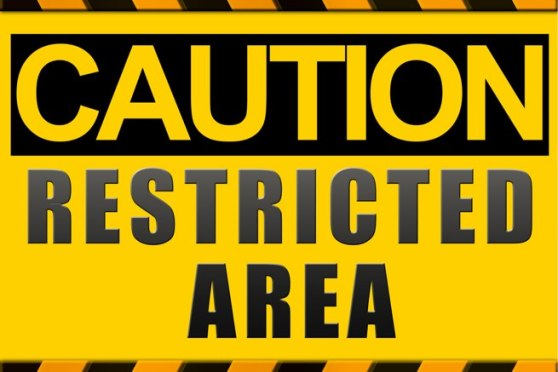Whistleblower Awarded $64 Million in JPMorgan Case
Posted on
A former JPMorgan Chase employee, Keith Edwards, is about to receive nearly $64 million for whistleblowing. Much has been written recently about the Whistleblower program now administered by the Securities and Exchange Commission (“SEC”), by Edwards pursued a different route.
He filed suit against the investment bank under the “qui tam” provision of the False Claims Act (“FCA”; also called the “Lincoln Law”). Read More
Hamilton & Associates to Publish OTC Pink Paper Series
Posted onBOCA RATON, Fla., March 21, 2014 /PRNewswire/ — Due to the fundamental changes in 2013 that continue to shape the new Securities landscape for capital raising and going public on the OTC Markets OTC Pinks, Hamilton & Associates Securities Attorneys has launched “OTC Pink Paper Series”, an e-book series by Securities Attorney, Brenda Hamilton, the founder of Securities Lawyer 101 Blog. Read More
SEC Suspends Citadel After Pumps and Dumps Report
Posted onOn March 21, 2014, the Securities and Exchange Commission issued a trading suspension pursuant to Section 12(k) of the Securities Exchange Act of 1934 (the “Exchange Act”), of trading in the securities of Citadel EFT, Inc. (“Citadel”), of Oceanside, California.
The SEC suspended trading in the securities of Citadel because of questions Read More
What is a Finder?
Posted onIt is not unusual for a private or public company to be approached by person (“Finder”) who offers to locate investors in exchange for a fee. Most finders are not registered as broker-dealers with the Securities and Exchange Commission (the “SEC”). The possibility of receiving capital even through the efforts of a finder creates a tempting opportunity for issuers who need capital. Matching companies with investors can be a lucrative proposition for the Finder. While it may seem harmless enough, the SEC does not think so and in fact, the SEC frequently brings cases against unregistered Finders and those who aid and abet them. Read More
SEC Suspends Petrotech Oil and Gas l Securities Lawyer 101
Posted on
On March 14, 2014, the Securities and Exchange Commission (“SEC”) announced the temporary suspension, pursuant to Section 12(k) of the Securities Exchange Act of 1934 (the “Exchange Act”), of trading of the securities of Petrotech Oil and Gas, Inc (PTOG). The SEC temporarily suspended trading in the securities of PTOG because of questions that have been raised about the accuracy and adequacy of publicly disseminated information concerning, among other things including PTOG’s operations. Read More
Albert Reda Sentenced to 26 Months
Posted onAlbert Reda, the former treasurer and chairman of the board of directors of First Global Financial Corporation, was sentenced for his role in a fraudulent kickback scheme. After a six-day trial, Reda was convicted of wire fraud and mail fraud.
Reda was sentenced to 26 months in prison, one year of supervised release, a fine, and forfeiture of his illegal earnings. In November 2013, following a six-day trial, a jury convicted Reda of wire fraud and mail fraud. Read More
Offering Price & Dilution Disclosures in Registration Statements
Posted onCompanies going public have several options in how to structure their transaction when filing a Form S-1 registration statement.
The issuer can seek to raise capital by registering shares to sell through an Initial Public or Direct Public Offering, it may register shares on behalf of existing shareholders or it can do both.
If the issuer seeks to raise capital using a registration statement it must disclose the criteria it used, if any, to arrive at the offering price.
If the issuer arbitrarily determined the offering price and no specific criteria was used in pricing the offering, this should be disclosed along with specific risk disclosures.
Some of the factors an issuer might consider in pricing an offering include: Read More
Use of Proceeds In Form S-1 Registration Statements
Posted onCompanies going public have several options in how to structure their transaction when registering securities with the Securities and Exchange Commission (“SEC”). They can seek to raise capital using the registration or they can simply register shares on behalf of existing shareholders. If the issuer seeks to raise capital using the registration statement expansive disclosures are required of the use of proceeds. Read More
Securities Lawyers Gone Wild l Russell Adler Charged
Posted onOn March 7, 2014, Russell Adler, a former name partner in Scott Rothstein’s now-defunct law firm was criminally charged for funneling illegal campaign contributions to Senator John McCain and Florida gubernatorial candidate Charlie Crist. Adler was charged with a single count of conspiracy to violate the Federal Election Campaign Act. Read More
Wwebnet CEO Pleads Guilty of $2 Million Securities Fraud
Posted on

On March 11 ,2014, the Department of Justice announced that Robert Kelly, the chief executive officer of Wwebnet, Inc. (“Wwebnet”), a software development company, pled guilty today in Manhattan federal court to securities and wire fraud charges. According to the charges, Kelly diverted for his own personal use more than $2 million in investor proceeds that was intended for the development of a software program capable of transmitting music, videos, and movies over the Internet. He used the money to trade options, to pay his personal income taxes, and for other purposes unrelated to software development or other legitimate business expenses. Kelly was originally charged in September 2012, and he pled guilty today before United States District Judge Paul A. Crotty. Read More
Status of JOBS Act Rules & Proposals
Posted onThe Jumpstart Our Business Startups Act (or JOBS Act) (“JOBS Act”), enacted in 2012, is intended, among other things, to reduce barriers to capital formation, particularly for smaller companies.
Among other things, the JOBS Act requires the SEC to adopt rules amending existing exemptions and creating new exemptions that permit companies to raise capital without filing a registration statement with the SEC. Read More
SEC Announces $7.2 Million for Rule 105 Short Selling Violations
Posted onOn March 8, 2014, the Securities and Exchange Commission announced the largest-ever monetary sanction for Rule 105 short selling violations as a Long Island-based proprietary trading firm and its owner agreed to pay $7.2 million to settle charges. Read More
The Intrastate Exemption l Section 3(a)(11)
Posted onSection 3(a)(11) of the Securities Act is generally known as the “intrastate offering exemption.” The exemption is sometimes used by small issuers in going public transactions prior to filing a registration statement on Form S-1.
The intrastate exemption facilitates the financing of local business operations if certain requirements are met. Read More
SEC Suspends Global Earth Energy l Securities Lawyer 101
Posted onOn March 4, 2014, the Securities and Exchange Commission (“SEC”)announced the temporary suspension, pursuant to Section 12(k) of the Securities Exchange Act of 1934 (the “Exchange Act”), of trading in the securities of Global Earth Energy, Inc. (“Global Earth”), a Nevada corporation commencing at 9:30 a.m. on March 7, 2014, and terminating at 11:59 p.m. on March 20, 2104.
The SEC issued the trading suspension due to a lack of current and accurate information concerning the securities of Global Earth including questions regarding the accuracy of publicly available information about the company’s operations. The SEC acknowledges the assistance of the Alberta Securities Commission, Quebec Autorité des Marchés Financiers, and the British Columbia Securities Commission in this matter.
The SEC cautions brokers, dealers, shareholders, and prospective purchasers that they should carefully consider the foregoing information along with all other currently available information and any information subsequently issued by the company.
Further, brokers and dealers should be alert to the fact that, pursuant to Rule 15c2-11 under the Exchange Act, at the termination of the trading suspension, no quotation may be entered unless and until they have strictly complied with all of the provisions of the rule. If any broker or dealer has any questions as to whether or not he has complied with the rule, he should not enter any quotation but immediately contact the staff in the Division of Trading and Markets, Office of Interpretation and Guidance, at (202) 551-5777.
If any broker or dealer is uncertain as to what is required by Rule 15c2-11, he should refrain from entering quotations relating to Suburban’s securities until such time as he has familiarized himself with the rule and is certain that all of its provisions have been met. If any broker or dealer enters any quotation which is in violation of the rule, the Commission will consider the need for prompt enforcement action.
For further information about this securities law blog post, please contact Brenda Hamilton, Securities Attorney at 101 Plaza Real S, Suite 202 N, Boca Raton, Florida, (561) 416-8956, by email at [email protected] or visit www.securitieslawyer101.com. This securities law blog post is provided as a general informational service to clients and friends of Hamilton & Associates Law Group and should not be construed as, and does not constitute, legal and compliance advice on any specific matter, nor does this message create an attorney-client relationship. Please note that the prior results discussed herein do not guarantee similar outcomes.
Hamilton & Associates | Securities Lawyers
Brenda Hamilton, Securities Attorney
101 Plaza Real South, Suite 202 North
Boca Raton, Florida 33432
Telephone: (561) 416-8956
Facsimile: (561) 416-2855
www.SecuritiesLawyer101.com
SEC Suspends Suburban Minerals Corp
Posted onOn March 4, 2014, the Securities and Exchange Commission (“SEC”) announced the temporary suspension, pursuant to Section 12(k) of the Securities Exchange Act of 1934 (the “Exchange Act”), of trading in the securities of Suburban Minerals Corp (“Suburban”), of Henderson, Nevada commencing at 9:30 a.m. on March 7, 2014, and terminating at 11:59 p.m. on March 20, 2104. Read More
SEC Shuts Down Pyramid Scheme Using Phony Companies l Securities Lawyer 101
Posted onOn March 5, 2014, the Securities and Exchange Commission (“SEC”) announced an emergency enforcement action to stop a fraudulent pyramid scheme by phony companies masquerading as a legitimate international investment firm. The SEC has obtained a federal court order to freeze accounts holding money stolen from U.S. investors by Fleet Mutual Wealth Limited and MWF Financial – collectively known as Mutual Wealth. Read More
What are the OTC Markets Reporting Requirements?
Posted onUnlike securities listed on stock exchanges such as NASDAQ or the NYSE, securities may trade through the OTC Markets interdealer quotation system whether they are a Securities and Exchange Commission (“SEC”) reporting issuer or not. There are three reporting standards for companies quoted by OTC Markets which vary depending upon the level of disclosure provided to investors.
OTCMarkets OTCQB & OTCQX Reporting Standard Read More
SEC Announces Trading Suspension of Aventura Equities
Posted onOn March 5, 2014, the Securities and Exchange Commission (“SEC”) announced the temporary trading suspension, pursuant to Section 12(k) of the Securities Exchange Act of 1934 (“Exchange Act”), of trading in the securities of Aventura Equities, Inc. (“Aventura”) commencing at 9:30 a.m. EST on March 5, 2014, and terminating at 11:59 p.m. EDT on March 18, 2014. The Commission temporarily suspended trading in the securities of Aventura because of questions concerning the adequacy and accuracy of publicly available information about Aventura. Read More
Jerry Williams AKA Monk Ordered to Pay Over $9,600,000
Posted onOn February 12, 2014, the Securities and Exchange Commission (“SEC”) announced that a Connecticut federal court entered judgments against a former Connecticut-based stock promoter, Jerry S. Williams, and two companies that he controlled, Monk’s Den, LLC and First In Awareness, LLC. Read More
What Is a Naked Short Sale? Securities Lawyer 101
Posted onThe Short Seller Scape Goat
In recent years, the activities of short sellers have been the subject of controversy. While short selling is a simple process it is widely misunderstood. While the average investor profits when he invests in a stock whose price goes up, a short seller profits when it invests in a stock whose price goes down. Read More































